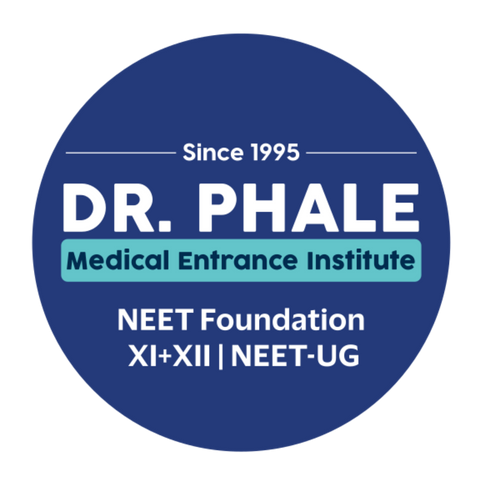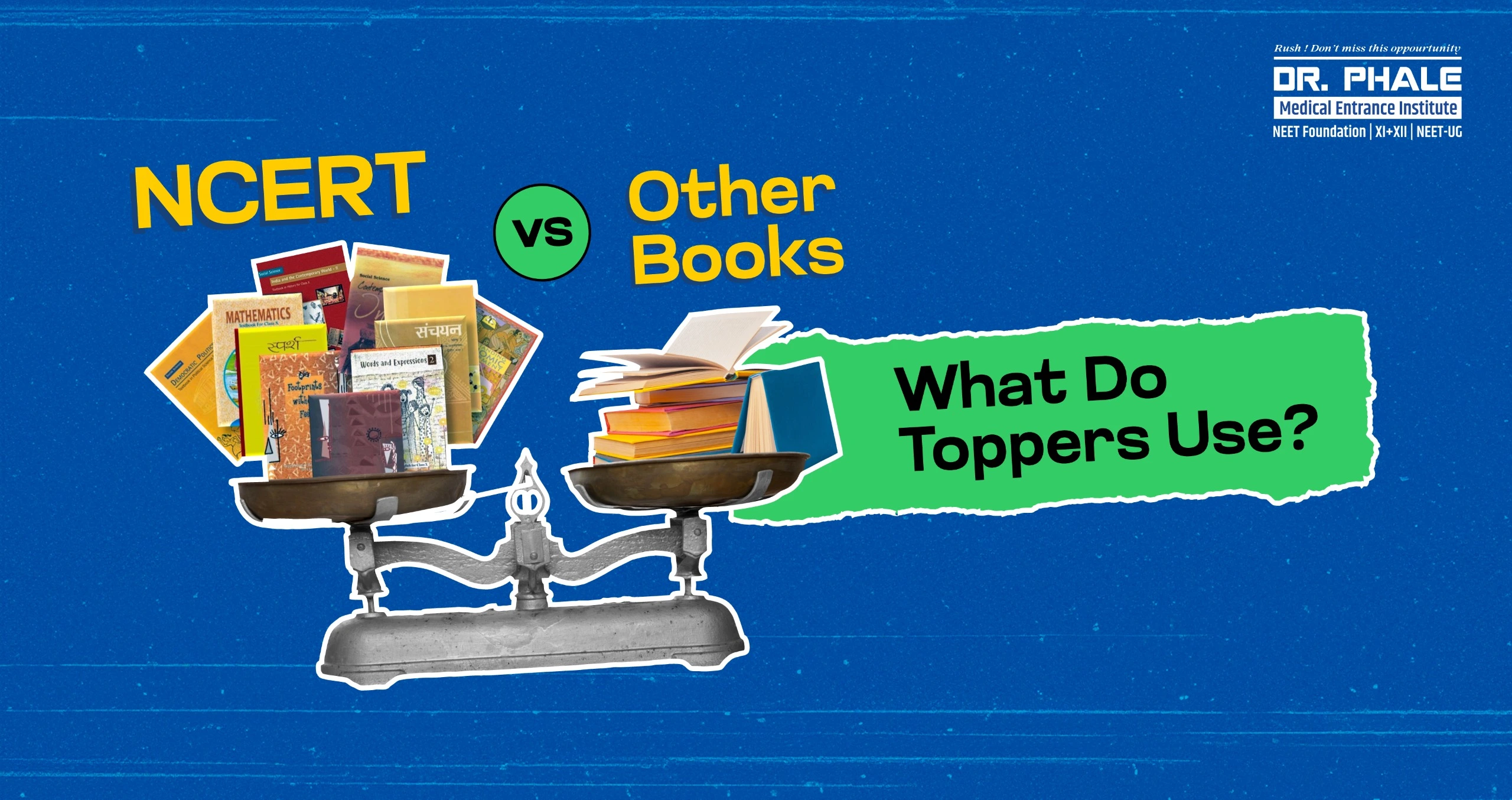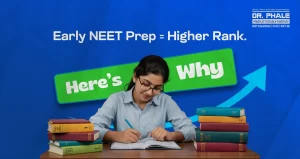When it comes to NEET preparation, one question that every aspirant asks is:
“Are NCERT books enough to crack NEET?”
The answer is both yes and no, depending on how you study them and how well you supplement them. In this blog, we’ll explore the importance of NCERT books, their limitations, and how NEET aspirants, especially students of Dr. Phale Medical Entrance Institute can smartly use NCERT to maximise their score.
What is NCERT, and Why is it So Important for NEET?
The National Council of Educational Research and Training (NCERT) publishes textbooks for CBSE classes, which form the foundation of the NEET syllabus, especially for Physics, Chemistry, and Biology.
NEET, conducted by NTA (National Testing Agency), strictly follows the NCERT syllabus for class 11 and 12. In fact, about 85–90% of NEET questions, especially in Biology and Chemistry, are either directly picked or conceptually based on NCERT content.
Subject-Wise Role of NCERT in NEET
- Biology – The NCERT Bible
- Importance: Over 90% of questions in NEET Biology come directly or indirectly from NCERT.
- Strategy:
- Read every line of NCERT thoroughly.
- Learn labelled diagrams perfectly.
- Pay attention to scientific terms, definitions, examples, and footnotes.
Pro Tip: Read NCERT Biology at least 10–12 times before NEET. Use a highlighter and make margin notes.
2. Chemistry – NCERT is Crucial, but Needs Support
- Inorganic Chemistry:
- Almost 100% NCERT-based in NEET.
- Memorise facts, chemical reactions, and exceptions from NCERT.
- Almost 100% NCERT-based in NEET.
- Organic Chemistry:
- NCERT is a great base.
- Practice additional problems for mechanisms, conversions, and name reactions.
- NCERT is a great base.
- Physical Chemistry:
- NCERT covers theory well, but numerical practice is needed from other sources.
- NCERT covers theory well, but numerical practice is needed from other sources.
Pro Tip: Make short notes and formula sheets for Chemistry from NCERT and revise them weekly.
3. Physics – NCERT is Not Enough Alone
- Theory in NCERT helps you understand concepts, definitions, and formulas.
- But NEET Physics is calculation-heavy. NCERT lacks enough numericals and variety of problems.
- You need to practice MCQs and numericals from reference books like HC Verma, DC Pandey, and coaching modules.
Pro Tip: Use NCERT to build a strong base, but rely on extra books for speed and problem-solving skills.
Advantages of Studying NCERT for NEET
1. Syllabus Alignment
NEET is based on CBSE class 11 & 12 syllabus, and NCERT is its official textbook.
2. Exact Language Used in NEET
Often, NEET questions are lifted word-for-word from NCERT lines, especially in Biology and Inorganic Chemistry.
3. Precise and To-the-Point
NCERT avoids unnecessary information. It gives you clear concepts and facts, which is perfect for objective questions.
4. Perfect for Revision
Since NCERT is compact, it’s ideal for last-minute revision before NEET.
Limitations of NCERT in NEET Preparation
While NCERT is powerful, it has its shortcomings, especially if you rely on it exclusively.
1. Limited Practice Questions
NEET is an MCQ-based exam. NCERT doesn’t provide enough variety of questions.
2. No Exam Strategies
NCERT doesn’t train you for speed, accuracy, or time management, which are crucial for NEET.
3. Lack of Numerical Depth
For Physics and Physical Chemistry,the NCERT theory is good, but you need additional books for numericals.
What Other Resources Should You Use Along with NCERT?
Here are expert-recommended supplementary resources to boost your preparation:
Subject | Supplementary Books |
Biology | Trueman’s Biology |
Chemistry | O.P. Tandon (Physical & Inorganic), MS Chauhan (Organic), Dinesh Chemistry |
Physics | DC Pandey, HC Verma, NEET Objective Physics by MTG |
Warning: Don’t use too many books. Stick to 1-2 additional books per subject and revise them repeatedly.
How to Read NCERT for NEET
- Read line by line and understand every sentence.
- Highlight important terms, exceptions, and examples.
- Make short notes – only what’s tough to remember.
- Create flashcards for Biology (for cycles, taxonomy, terms).
- Revise NCERT at least once every 15 days.
- Solve NCERT-based MCQs from MTG, Arihant, or coaching materials.
Special Tip: NCERT Exemplar & MTG Fingertips
- NCERT Exemplar (especially for Chemistry & Physics): Great for understanding tricky concepts.
- MTG NCERT Fingertips: Excellent for NCERT-based MCQ practice across subjects.
How Dr. Phale Medical Entrance Institute Helps
At Dr. Phale Medical Entrance Institute, our faculty ensures students:
- Master NCERT line-by-line through repeated classroom reading.
- Solve NCERT-based MCQs in every test and worksheet.
- Use NCERT diagrams and flowcharts for visual memory.
- Revise NCERT with weekly tests.
Our result-driven approach focuses on NCERT-first, practice-second methodology that has helped hundreds of students achieve top ranks.
Are NCERT Books Enough?
Let’s break it down:
Subject | NCERT Alone Enough? | Recommended Approach |
Biology | Yes (90%+ coverage) | Read & revise repeatedly |
Chemistry | Partially | NCERT + MCQ Practice |
Physics | No | NCERT + Numerical Practice |
So, NCERT is the foundation, but you need to build the structure using practice books and test series.
Conclusion
To crack NEET with a good rank:
- Master NCERT thoroughly, especially for Biology and Chemistry.
- Supplement NCERT with additional practice materials.
- Focus on regular revision, smart strategies, and consistent mock tests.
NCERT is not just a textbook, it’s your key to success in NEET, provided you use it strategically.
Ready to Strengthen Your NEET Foundation?
Join Dr. Phale Medical Entrance Institute, Nagpur’s trusted institute for NEET preparation, and get:
✅ In-depth NCERT coverage
✅ Daily MCQ practice
✅ Weekly NCERT revision tests
✅ Expert mentoring
📞 Call now to book your free counselling session!
Call Us



